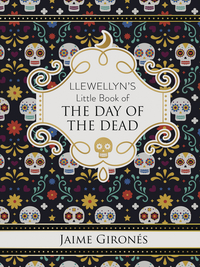 Submitted by Tijax Etznab on
Submitted by Tijax Etznab on

The Day of the Dead is celebrated in Mexico and other Latin American countries, around the end of October and the start of November. It is a diverse celebration, with a history full of syncretism, and with a living spirit that crosses borders, religions, generations, populations, and, sometimes, mingles with other traditions and festivities.
During the Day of the Dead, we remember our dead loves ones and our ancestors and we honor them, their lives, and their contributions. We express gratitude for their continuations and blessings. We share with them our food and drinks. We give them offerings. We welcome them to our homes. We visit their graves.
I share here 5 things anyone can learn from the Day of the Dead, either if you already have the book or if you are interested in learning more about the Day of the Dead.
- A Better Understanding of Our Present
During the Day of the Dead, we celebrate those dear to us who have passed away, including our ancestors. We gather pictures of them for our altar. We think of them and share stories of them. We reflect on their lives and their contributions to ours.
The life of my grandfather, for example, influenced mine. Besides my life not being possible without my father's and his without my grandparents meeting each other, his experiences during the Spanish Civil War and being exiled to Mexico shaped the way we look at helping others in need.
When we think about our past, we end up understanding better our present. When we think of what our ancestors lived and how they lived it, and how it influences our life, we comprehend a bit more why our present is as it is.
- Everything Has a Cycle
As Pagans, we know that everything has a cycle. We see the cycles of life in the phases of the Moon, in the seasons of Earth, and our lives. We understand that death is part of this cycle of life and that death is not the end of the cycle.
The Day of the Dead is a reminder that everything has a cycle—not just because it is a celebration related to death, but also because the main foundation of the Day of the Dead comes from the agricultural cycle of the maize and the customs of the indigenous people in central-southern Mexico.
The Day of the Dead marks the end of the rainy season and the harvest of the maize, and the abundance is shared with the ancestors, who also made the harvest possible with their blessing.
- Death as an Opportunity to Be Grateful
During the Day of the Dead, we honor how the lives of our loved ones and ancestors blessed our lives. We appreciate the moments we lived together. We share our abundance with them and we thank them for their blessing.
I’m grateful that Miss Meche, the founder and director of my school, would celebrate Day of the Dead each year with all students. I'm passionate about the Day of the Day in big part because of her.
The lives of our loved ones contributed to what we have today, either directly or indirectly. We would not be here today without their yesterday. We feel gratitude for those moments, for the opportunity to have had those, and for how they influenced our life.
When we think about death and the dead, we may end up thinking as well how much time we have with our living loves ones, as it is not infinite. How our own time in this world is limited as well. We feel grateful for the time that we had, and for the time we have still.
- Death as Part of Life
The Mesoamerican people believed that the way someone had died determined their soul's destination after death.
I invite you to ask yourself, "How are you living today? If you could choose, how would you like to die?"
For example, I wouldn't like to be sick or to die alone. I would like to die with health, older, and full of love around me. This makes me ponder how I am taking care of my relationships and health today.
Death is a constant reminder in our lives that our time here is limited, and makes us think about how we are using it. When we think of death, we end up thinking of life. When we think of how we would like to die, we have to think of how we would need to live.
- Death Can Be Celebrated
The Day of the Dead is usually not a sad celebration, but a happy and fun one (with a slight nostalgic tone), where people cook special dishes, eat, dance, sing, decorate their homes and altars, among other diverse activities. For a few days or weeks, people dedicate a specific time and a place (an altar or grave) to celebrate and remember their deceased.
Death is not an end, but a part of a cycle. After death, comes rebirth. And end announces a new beginning. We see this every day with the sunset and the sunrise. We celebrate this each year on New Year's Eve. We experience death and end all the time. In our relationships, with a separation. In our work, with an end of a project or contract. In our spiritual lives, when a spiritual group is dissolved. All deaths carry grief, but none of them are the endings of the story.
The loss of a loved one is not easy, and we all process grief in different ways and with a different rhythm. However, based on personal experience, I believe the Day of the Dead can help a bit in the process. I think that, as long as you don't force yourself and only do what feels safe for you and what comes from your heart, it can help to cope with the loss if you allow yourself to experience your grief differently and set a specific time and place to think of your dead loved ones and share with them, talk to them, and remember them.

Jaime Gironés
https://www.llewellyn.com/journal/article/2943
Copyright © 09-23-2021 - Llewellyn Worldwide, Ltd.
In my book Llewellyn's Little Book of the Day of the Dead I share with more detail the history, the origin, and diversity of the celebration. I explain different ways it can be celebrated, including activities, recipes, meditations, and rituals, whether you are of Mexican or Latino heritage or not, and I explain how to set up a Day of the Dead altar and what each item of the altar represents.

- 538 reads